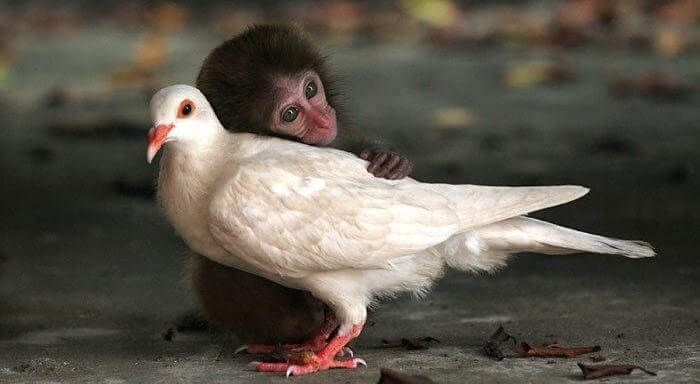Be Happy with People's Good Qualities

In our lives we are faced with anxiety and a multitude of conflicts, and they aren’t related exclusively to our identity. Even if we isolated ourselves, tried to get on with things in the remotest place on earth and forgot about everything and everyone, we still wouldn’t be able to escape the fact that we are already part of everything that goes on around us. So, when looking for friendship, is it possible to find the complete package. If not, what should we do? And what exactly is neurosis?
On any given day we can live an absolute roller coaster of emotions in our relationships with others. Everything can seem either ridiculous, absurd, incoherent or incredibly stimulating, and this can have cognitive and emotional implications.
Taking this into account let’s consider a famous phrase of Sigmund Freud, who said: “neurosis is the inability to withstand ambiguity“. From this observation we understand that real life becomes difficult when there are too many conflicts, but, at the same time, our psychological health depends on our ability to accept and tolerate them. Let’s analyze how to deal with it.
The constant ambiguity in our daily relationships
Let’s imagine a day that you get up in the morning and start talking to an old schoolmate. You’re happy to be able to talk to her again, and everything is going perfectly. At least it seems so, but, then, suddenly she gives an unexpected opinion on the subject of refugees.
You instantly want to forget her comment because it is contrary to your view, and you want to carry on seeing things in the same way. But her comment has disturbed you and you keep on turning it over and over in your mind.

The relationship on an intellectual and virtual level seemed much more interesting. The values raised and shared previously can’t make up for the lack of connection. The same assertiveness and conviction that from a distance seemed exciting, just gave way to abrupt disappointment. You have fallen prey to false expectations.
Expectations: the prelude to our disappointments
We are immersed in a constant conflict between what we think about others, what we hope happens and what finally happens. We continually create expectations that crumble again and again, and leave us as broken people.
It seems that, faced with such ambiguity, neurosis is the unavoidable conclusion, nothing seems to fit. The next question however is: why should it fit? To what extent can we relax can relaxing our views and ideas help us to be happy when we are with other people? Is moral relativity the beginning of a lack of values, or, conversely, is it the first step to making everything a more pleasant experience?

The origin of our neurosis regarding personal changes and differences
The fact that we are not prepared to accept diversity comes from an education based on fear, censorship and the imposition of constant rules in an attempt to avoid social chaos. We increase our educational resources to try and avoid disasters, but not to create paradises where we can live in peace and where we can find refuge if disaster does strike.
Hence we avoid and filter out the parts of us that don’t fit in with other people. We try to protect and define ourselves, but in reality we become isolated, depressed and frustrated. We end up being bitter and embittering the lives of others. Sometimes our great principles and values manifest themselves in a daily behavior that leaves much to be desired.
We want the complete package, but accepting others is sometimes what gives us peace
We want to find the “complete package” in those around us, but we realize that when we have it, it doesn’t fix the faults inside of us. To open ourselves up to something that does not fit in with our ideas is exciting, enriching and exactly what diversity is all about.
Accepting diversity doesn’t mean us stopping being who we are and where we are going. To cure ourselves of neurosis it is important that we rethink a number of issues:
- Believing in certain values shouldn’t mean we treat other people unfairly. Disagreeing on numerous issues with a person shouldn’t prevent us from being courteous. If people offend us or treat us with contempt, we do not have to act in the same way. Keeping our distance is not only courteous in these cases, it is true wisdom
- Every time you let bad feelings invade you because of comments that are not to your liking you are depriving yourself of all that you are passionate about and of the people who do make you feel good.
- Explore new paths of understanding with people whom you can agree to disagree with. No one opens up new roads by walking along ones that have already been made, or by carrying the same heavy loads as before

This text is provided for informational purposes only and does not replace consultation with a professional. If in doubt, consult your specialist.








